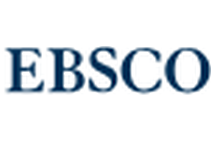Development in the First Years of Child’s Life. Analysis of the Romanian Regulatory Framework of Early Education
Perceived as early education and/or elementary education, early upbringing is associated to a complex of finalities: development, learning, humanisation, socialisation, disciplining, empowerment, culturalisation etc. Accepted as a distinct and primordial intentional direction of each and every educational process, child development is mostly often placed within an implicit acting registry with its emerging (negative and positive) effects. The Romanian regulatory system in force with regard to formative intervention within formal framework for young children contains an original structuring where development represents a variable of content which would transcend its finality and does not lose that statute.
Development is given the central part within the referential construction of ideas in the documents specifying directions to be followed by practitioners’ interventions. This study emphasises the statue of the development variable within the document on Early Educational Curriculum for children from birth to 6/7 years (in effect as for 2008), while it gives corresponding stages for ages between 0 and 3 years and 3 to 6/7 years.
development, early education, elementary education, curriculum
LILIANA STAN – PhD Prof., “Alexandru Ioan Cuza” University of Iasi, Faculty of Psychology and Educational Science, Iaşi; e-mail: liliana.stan@uaic.ro



